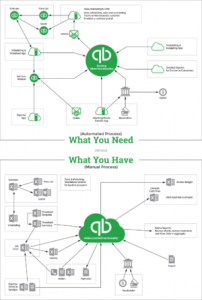… and Give it More Grunt Where You Can’t.
The world record for a spreadsheet-based error is US$6.2 billion (yes, Billion with a B, with JP Morgan). It involved a copy-and-paste error, and was a real cash cost.
The runner up is “only” US$2.6 billion (Fidelity Magellan) – a fat fingered mistake that omitted a minus sign. This was “only” a disclosure matter – no actual money was lost.
Nonetheless, in both cases it’s a safe bet that someone was looking for a new job before the day was out.
…
Excel is pervasive because it’s useful: it is a spreadsheet, it can be used as a database, and it has text editing capabilities. (For trivia buffs: these three characteristics gave the name to Lotus’ flagship product, Lotus 1-2-3.) That said, there are all sorts of reasons why you should get rid of it where you can, and beef it up where you can’t:
Most spreadsheets contain errors.
The errors don’t have to be huge, but it’s enough to consider that your estimating template might be producing quotes that are 5% too low (your margins suffer) or 5% too high (you might be losing some business).
The spreadsheets may actually be inefficient.
Nearly all Excel users are self-taught, and even then, most formal courses focus on formulas, not on spreadsheet design. (Yes, there is such a thing.) As a result, the in-house solution most likely requires manual data entry, which slows things down and increases the likelihood of rework because of keystroke errors. And that assumes that it’s calculating things correctly as noted above.
There are probably better and inexpensive tools out there.
If you’re using Excel as your budgeting and reporting tool, your timesheet and expense reporting tool, and/or your customer database, please remember that there’s an app for that (those). Most of those are within the budgets of most small to medium enterprises.
Profit Breakthrough:
Create a spreadsheet inventory. Start with your most important or most frequently used workbooks. Pause when you hit 10 workbooks. It won’t take you long. Ask yourself if there is another way to do things. (Hint – there probably is. And it’s less expensive than you think. And it will save you time and money in the long run.)
Efficiency is good. Effectiveness is better. Look at all the places where you’re using Excel, and consider moving each one towards specialized but off-the-shelf software. Beef up whatever’s left with adds, cross-ads, and data validation.
We welcome your Comments! Please also feel free to Contact us, either via email or using our website.

